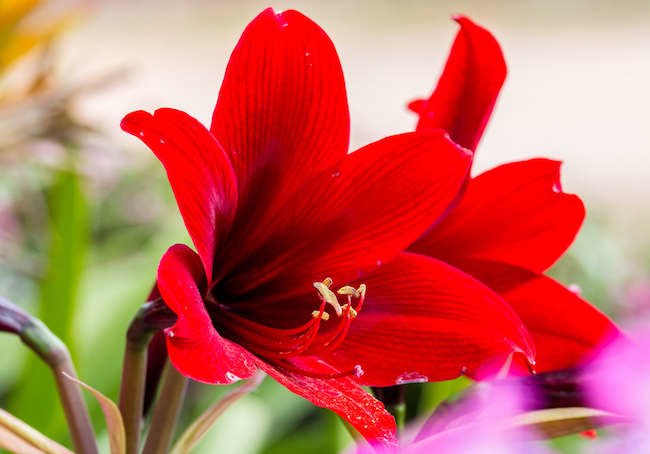

We may earn revenue from the products available on this page and participate in affiliate programs. Learn More ›
Home Advice You Can Trust
Tips, tricks & ideas for a better home and yard, delivered to your inbox daily.
By signing up you agree to our Terms of Service and Privacy Policy.
Fiendish Flora
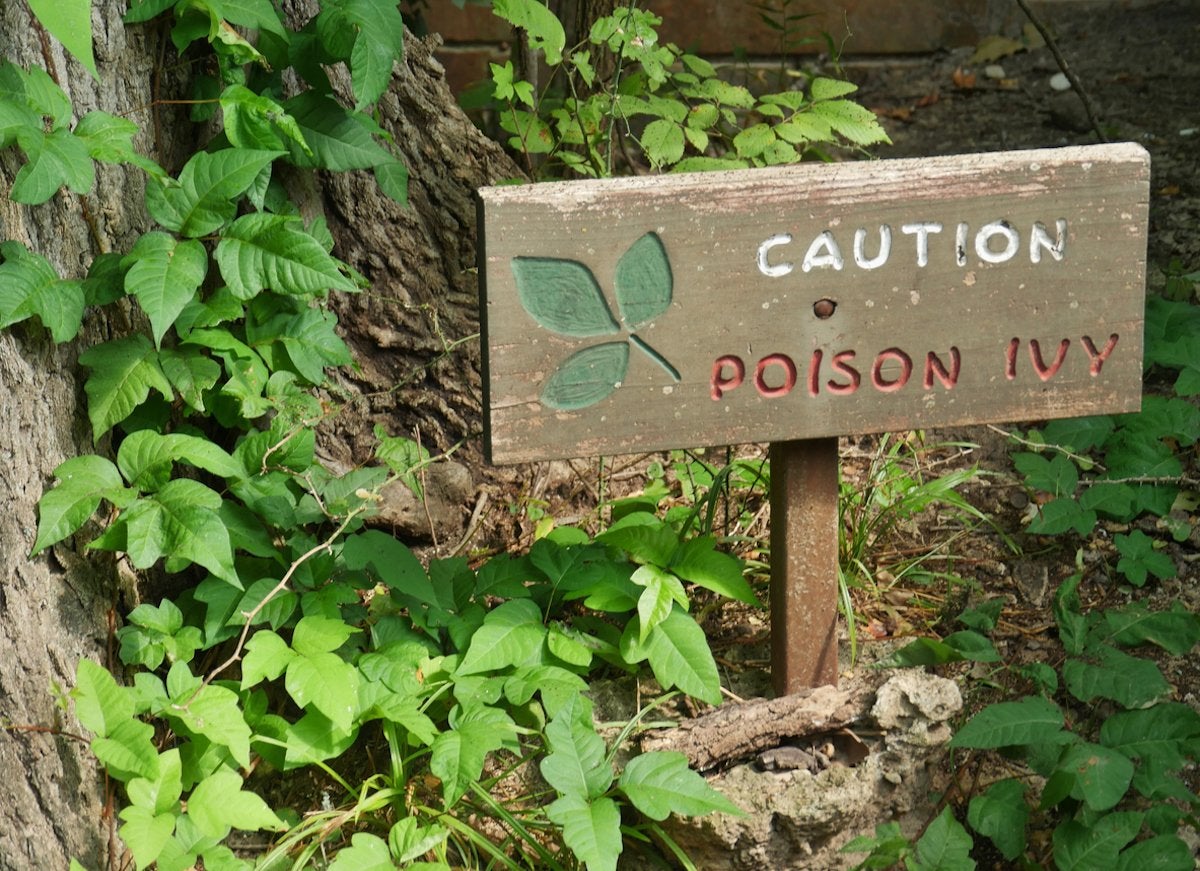
We’ve all heard the warnings about poison ivy (seen here): “Leaves of three, let it be.” But even more sinister plants might be lurking in your garden, hiding behind fragrant flowers and beautiful blooms. Some dangerous flora are common in home landscaping and can easily be mistaken for something delicious or benign, especially by children or pets. Here are 10 to watch out for…
Monkshood
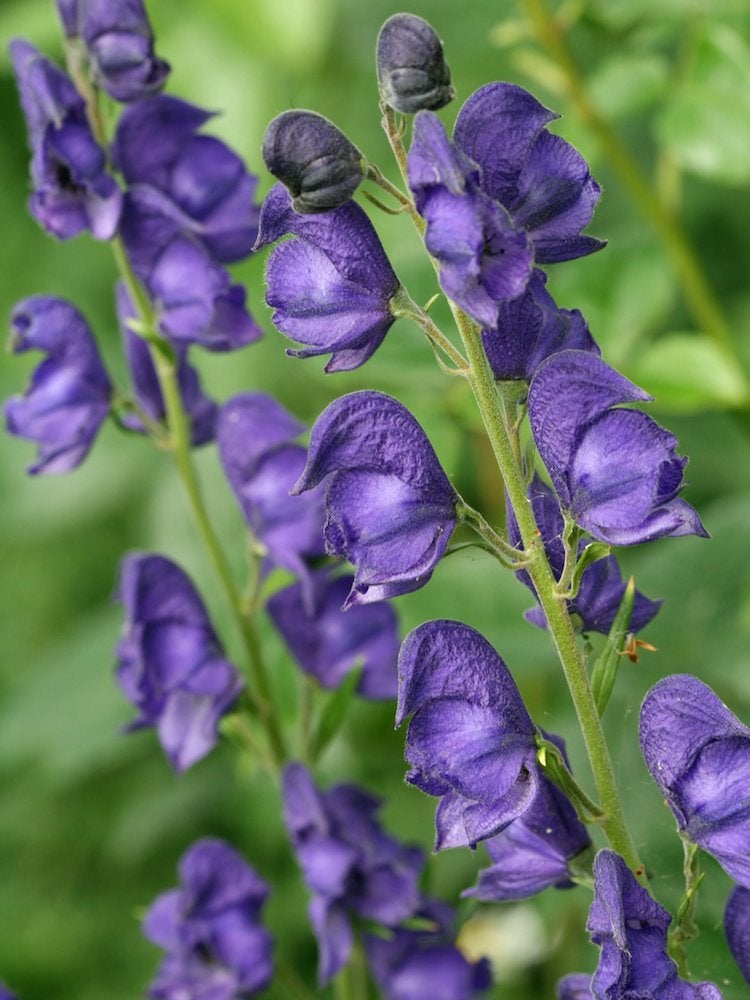
Commonly mistaken for horseradish, this perennial’s bulbs can kill a grown adult. Even touching its leaves with bare hands may result in numbness, so wear gloves when dealing with this indigo beauty.
Foxglove
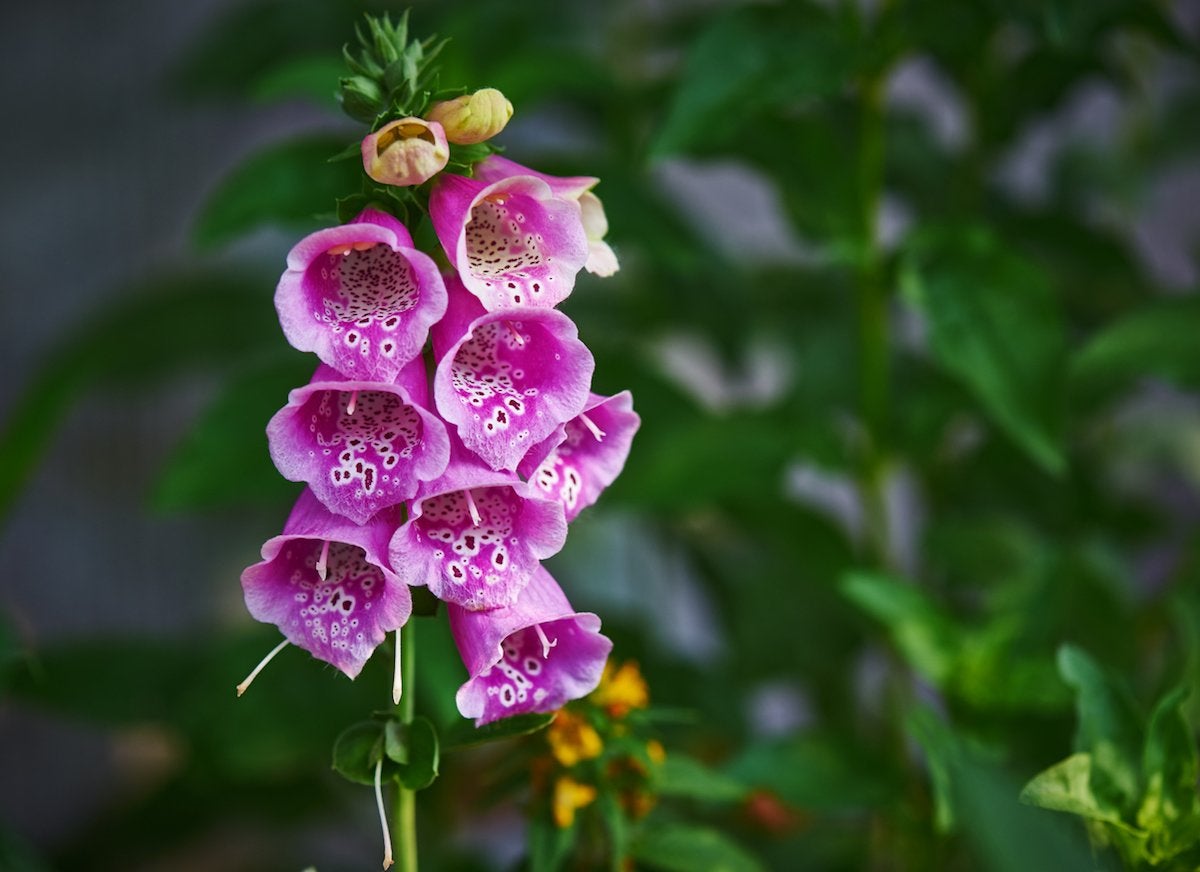
A member of the snapdragon family, this stunning ornamental sports lovely bell flowers that bloom in many vibrant colors. However, ingesting the flowers, seeds, stems, or leaves of this attractive plant can be poisonous, causing symptoms ranging from vomiting and diarrhea, to wild hallucinations, delirium and even death. Over time, this plant has picked up a host of sinister nicknames like “Dead Man’s Bells” and “Witch’s Gloves.”
Oleander
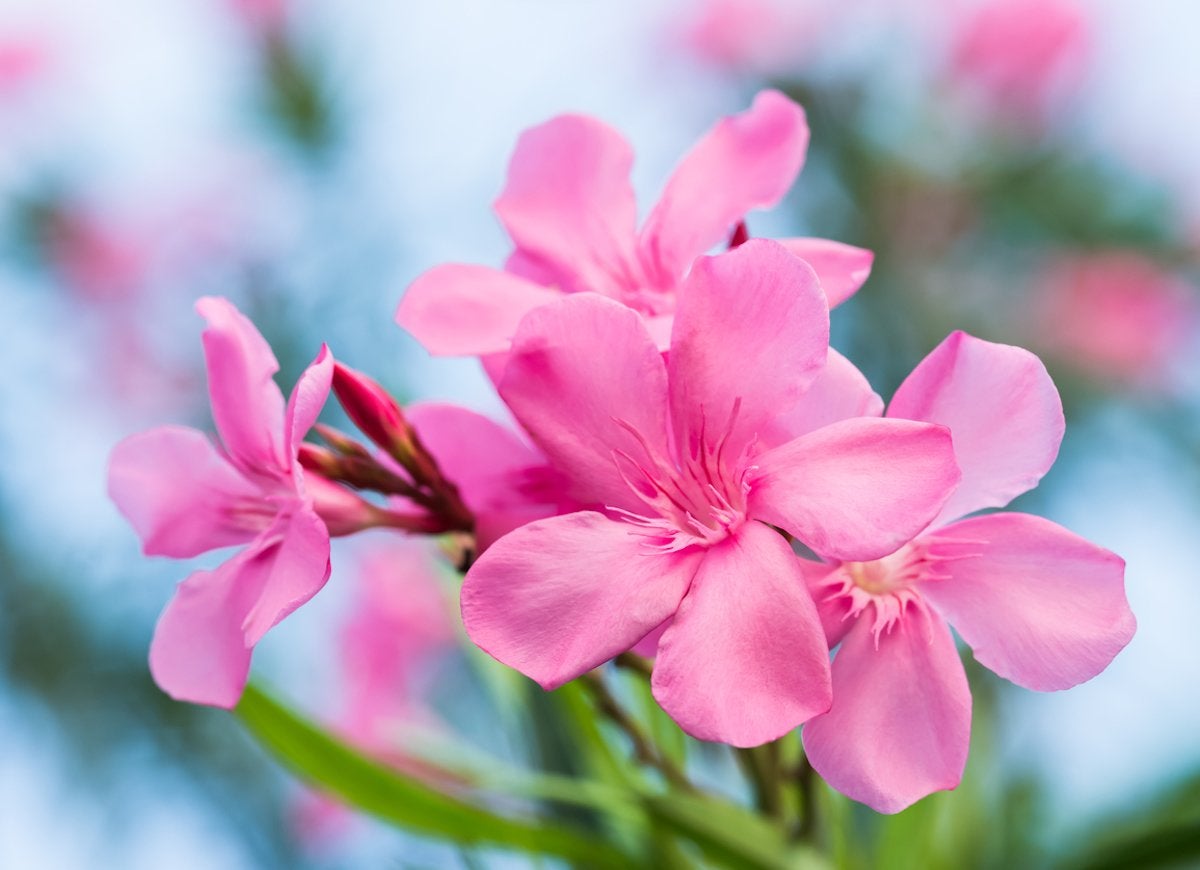
While its showy flowers are a natural draw for those looking to add a drought-tolerant, deer-resistant plant to their garden, oleanders are one of the more deadly shrubs commonly grown in the US. All parts of the plant can be lethal if ingested in excess. Just touching its sap can irritate and inflame your eyes.
Castor Bean
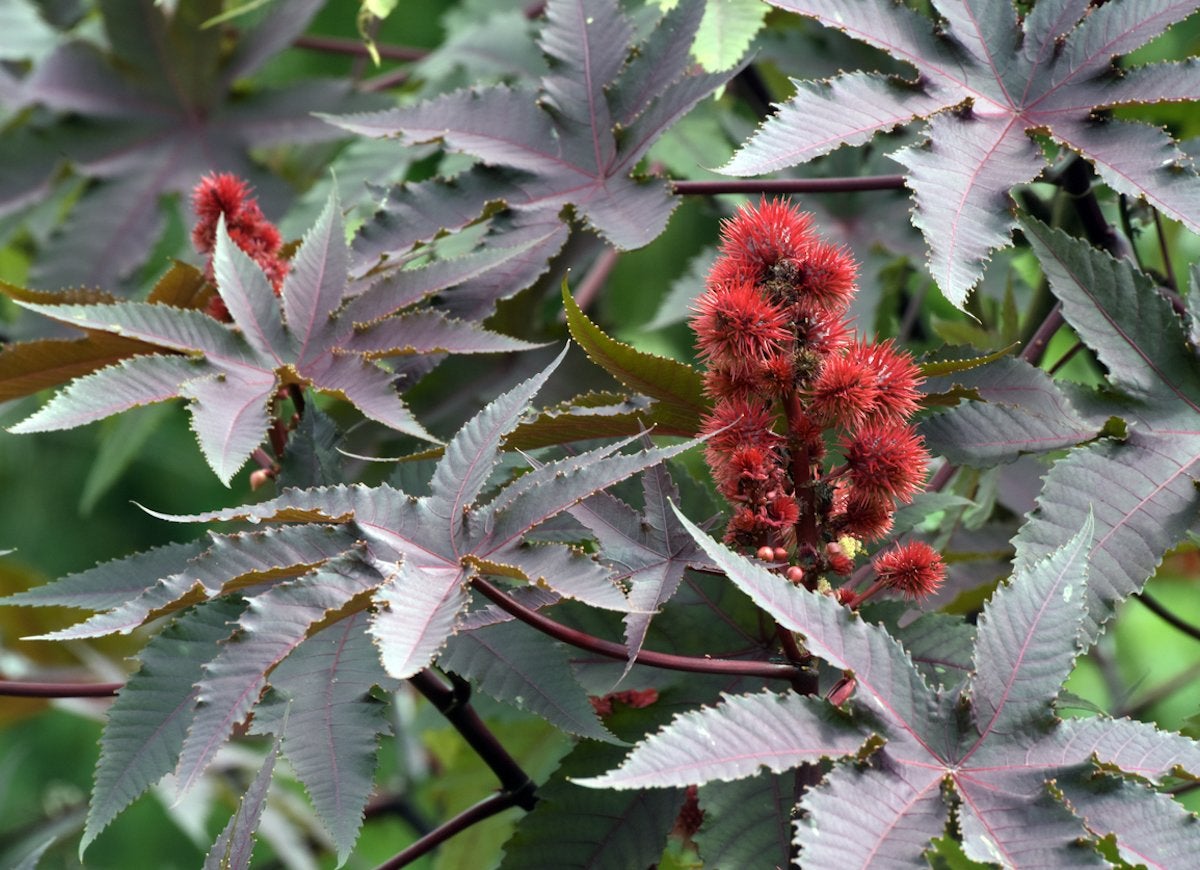
Though grown for its striking, large-lobed leaves and attractive flowers, the seeds of the castor bean plant contain one of the deadliest poisons around—ricin. Best to remove it from your yard if you have children or pets, or keep livestock.
Pyracantha
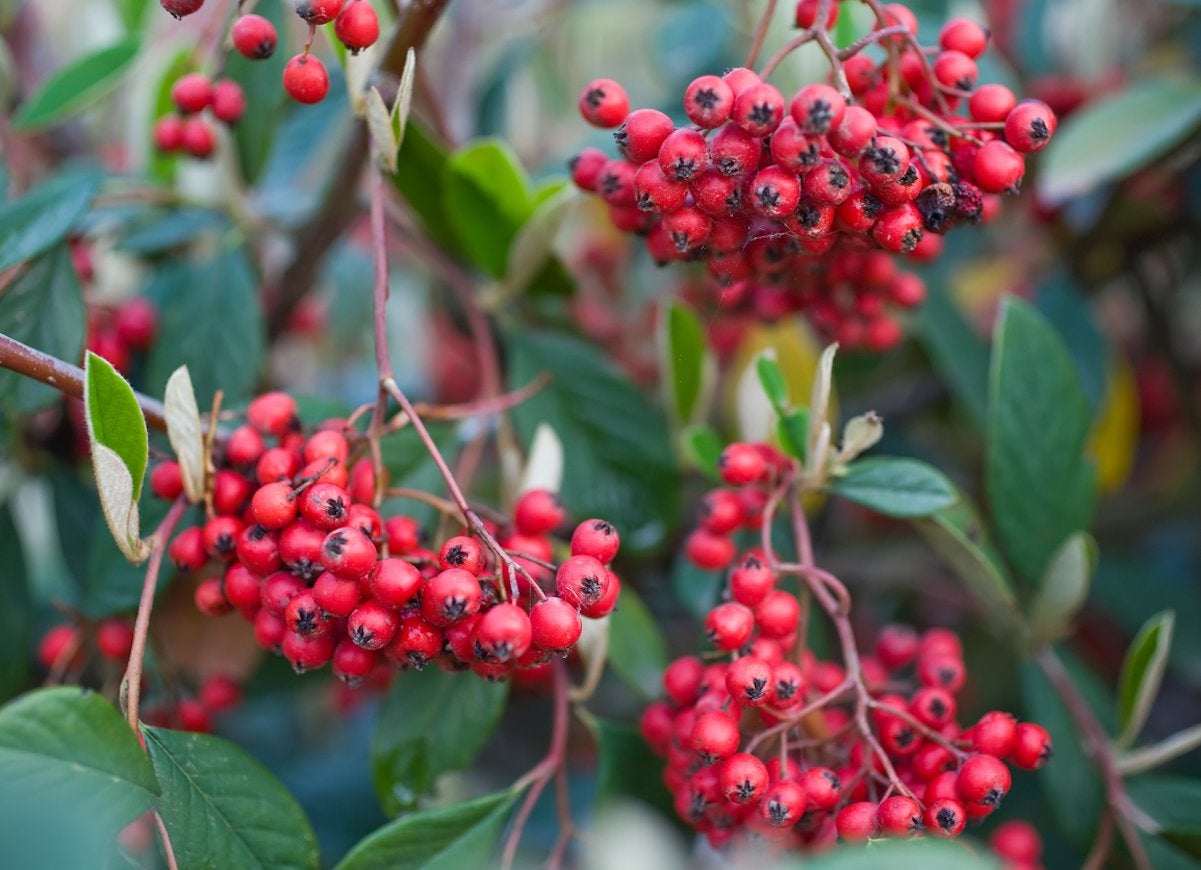
The thorns of this common evergreen shrub can bring on an itchy rash or burning sensation on those with sensitive skin. A simple prick can release a potent allergen, earning this plant the nickname “Firethorn.” If you’re particularly allergic, a close encounter can cause joint pain that lasts for several days.
Jerusalem Cherry
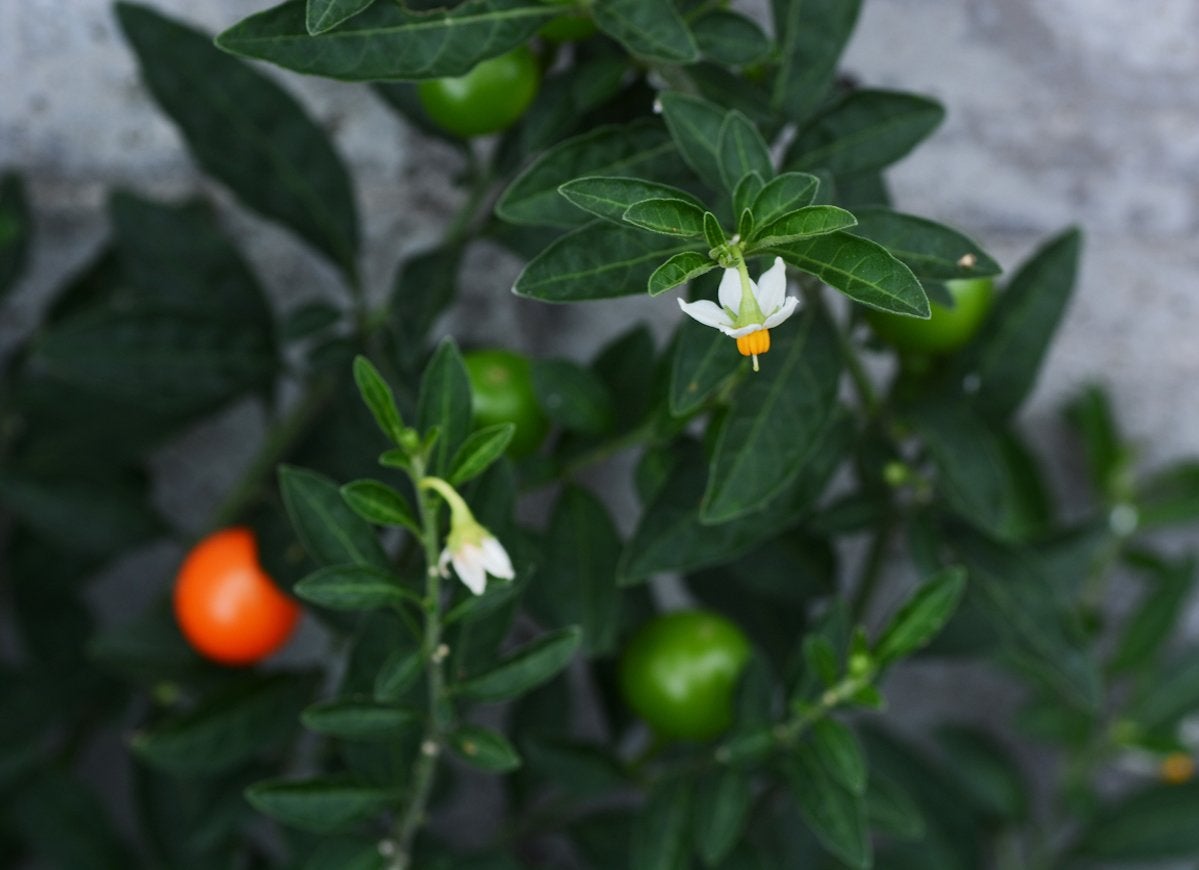
With fruit that looks remarkably similar to a cherry tomato, this plant can tempt you to pop a Jerusalem Cherry—or winter cherry— into your mouth. But doing so could lead to serious gastric problems and even more dire consequences for pets and young children. Better to dig up and discard these plants than risk it!
Calla Lily
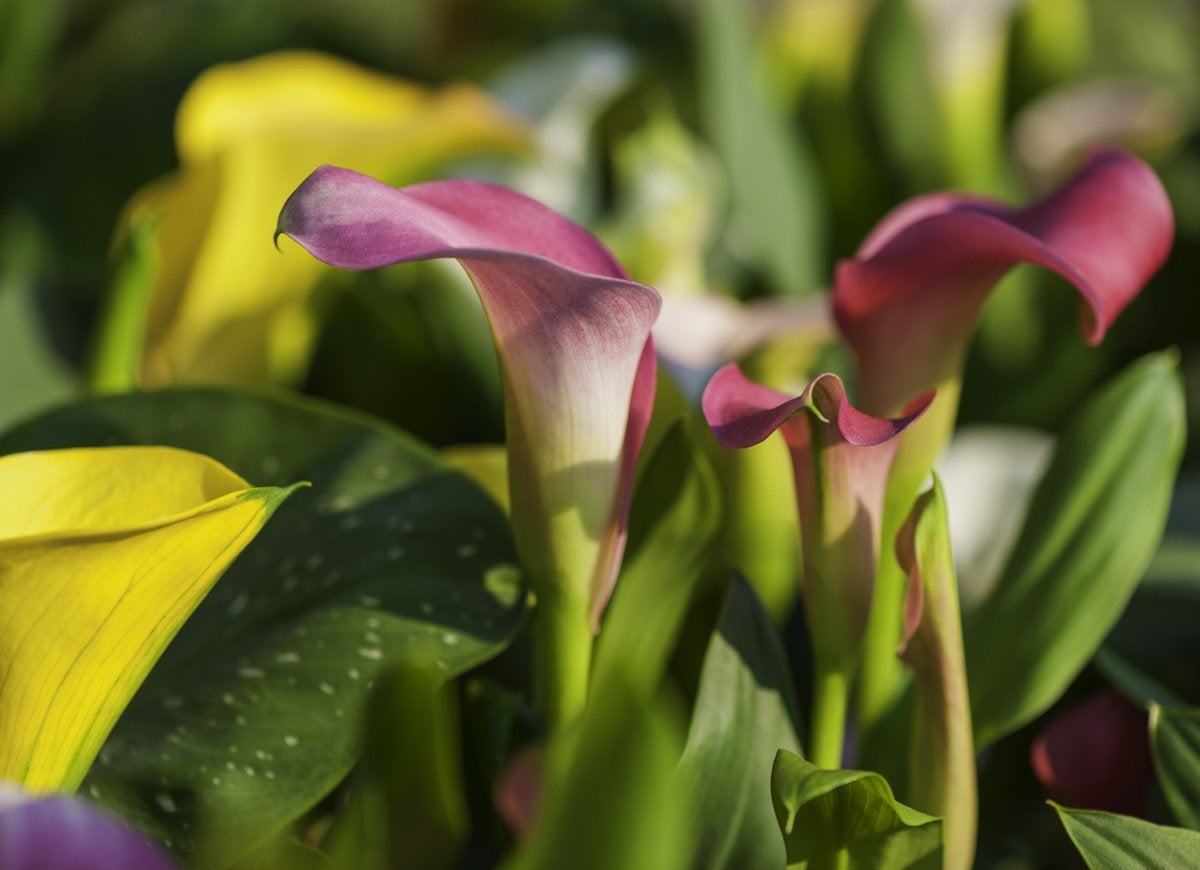
Even just a bite or two of the elegant calla lily can cause liver failure in pets and the mouths and tongues of humans to swell. The protein asparagine, found particularly concentrated in the roots of this plant, is poisonous, so be extra prudent with this popular cut flower.
Pokeweed
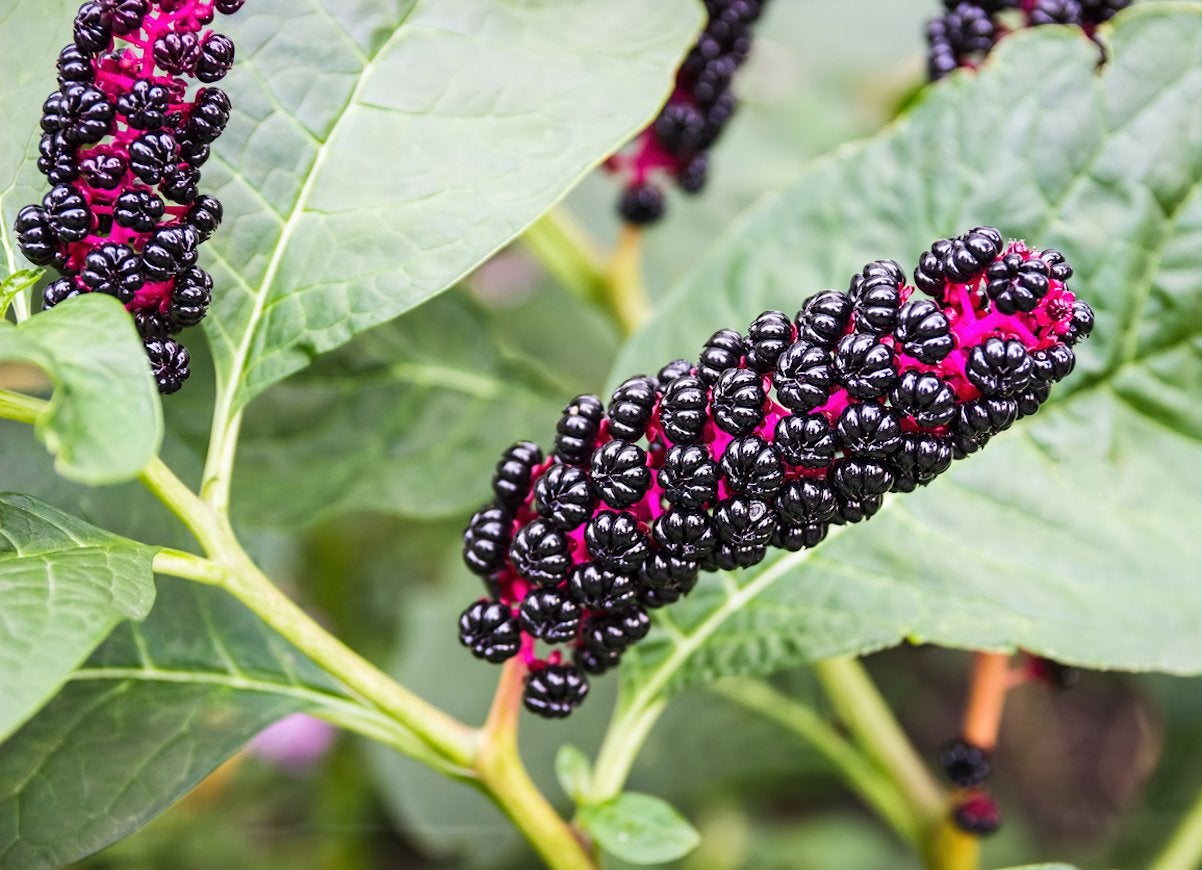
Don’t be fooled by a bird’s ability to snack on the appealing purple clusters of the pokewood’s fruit. Humans will get severe stomach pain and potential headaches if they try to do the same.
Amaryllis hippeastrum
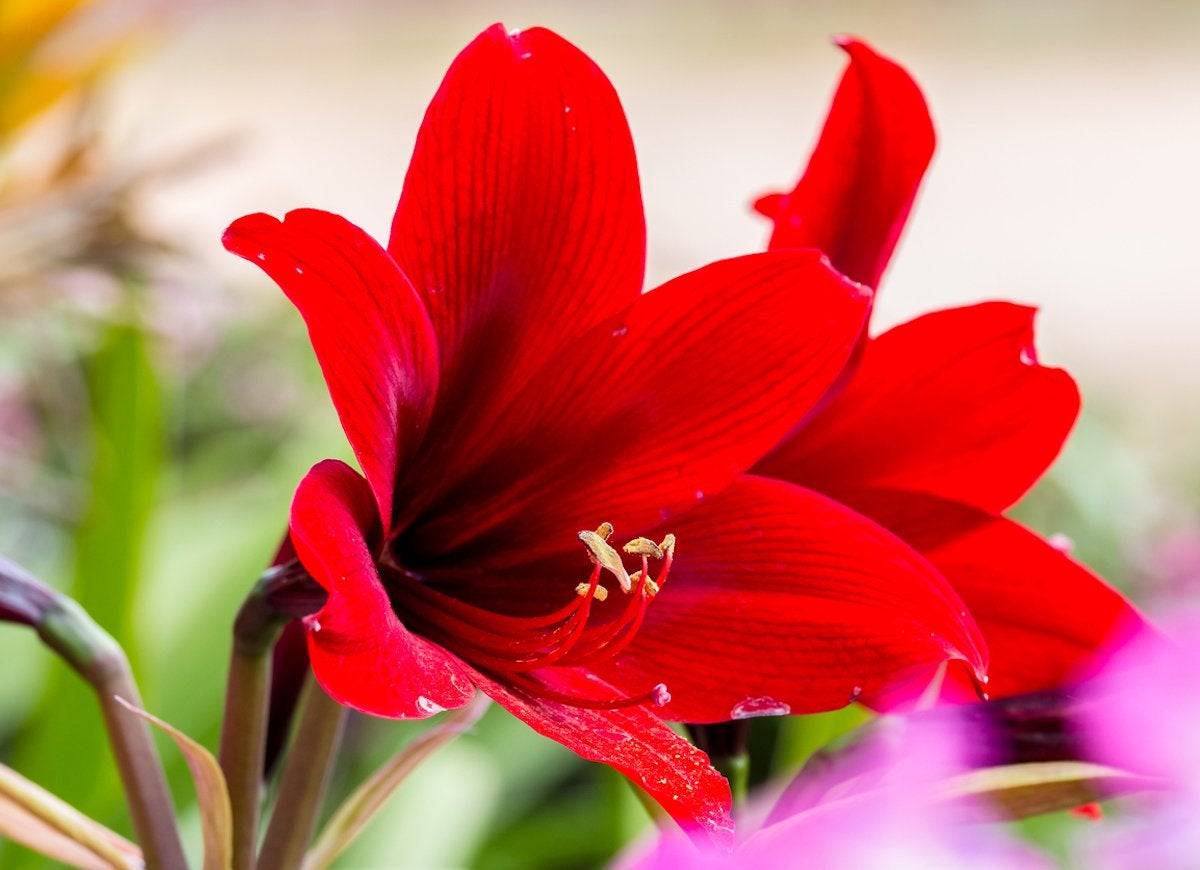
Carrying a toxic alkaloid called lycorine, the indoor amaryllis bulb will cause unpleasantness to any household pet that tries to snack on it—from diarrhea to vomiting. Most animals need to eat a large amount to truly be affected, so don’t let it stop you from enjoying the bright trumpet flowers.
Poinsettia
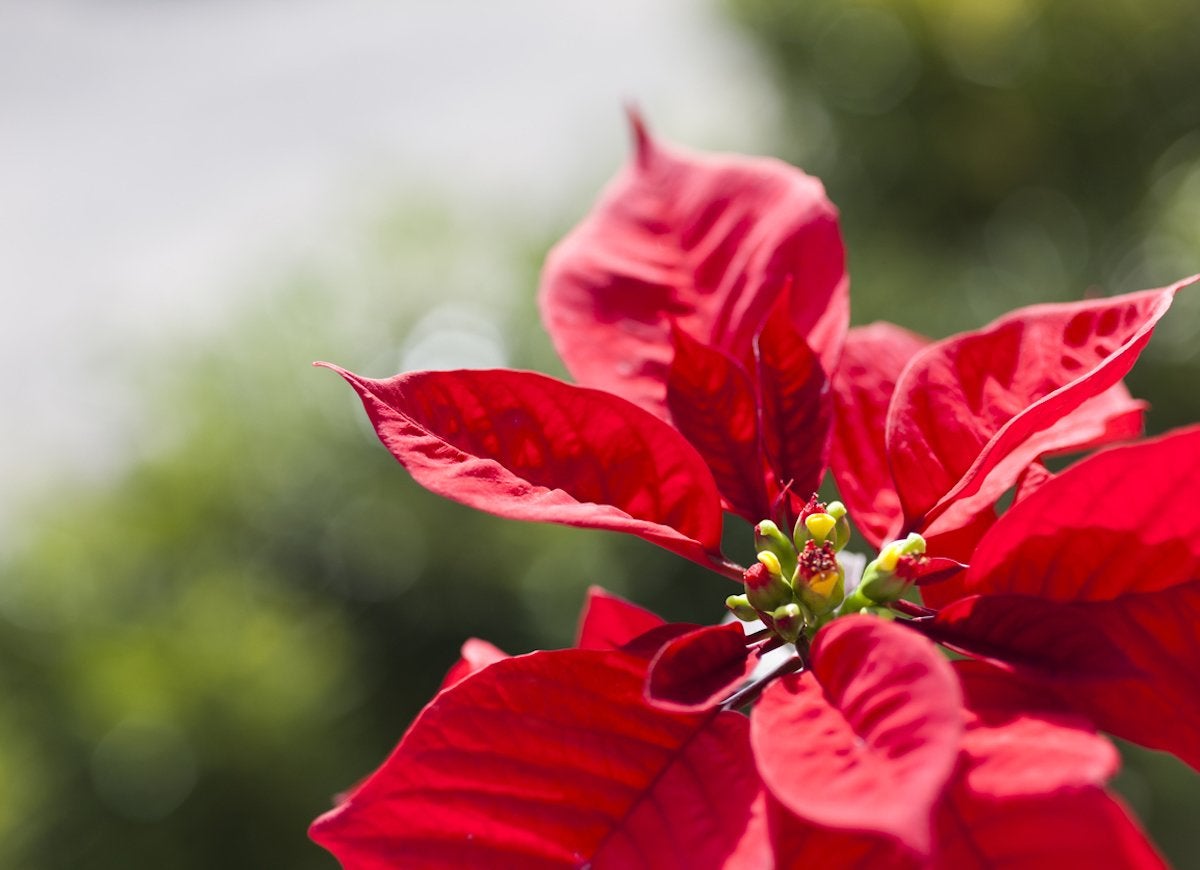
Though they have a reputation of killings pets, the milky white sap found in poinsettias is actually only mildly toxic to animals and small children. Ingesting it can cause a stomach ache, but not much worse. Still, best to keep them in a less accessible area to avoid any trouble.
Beware of Plants
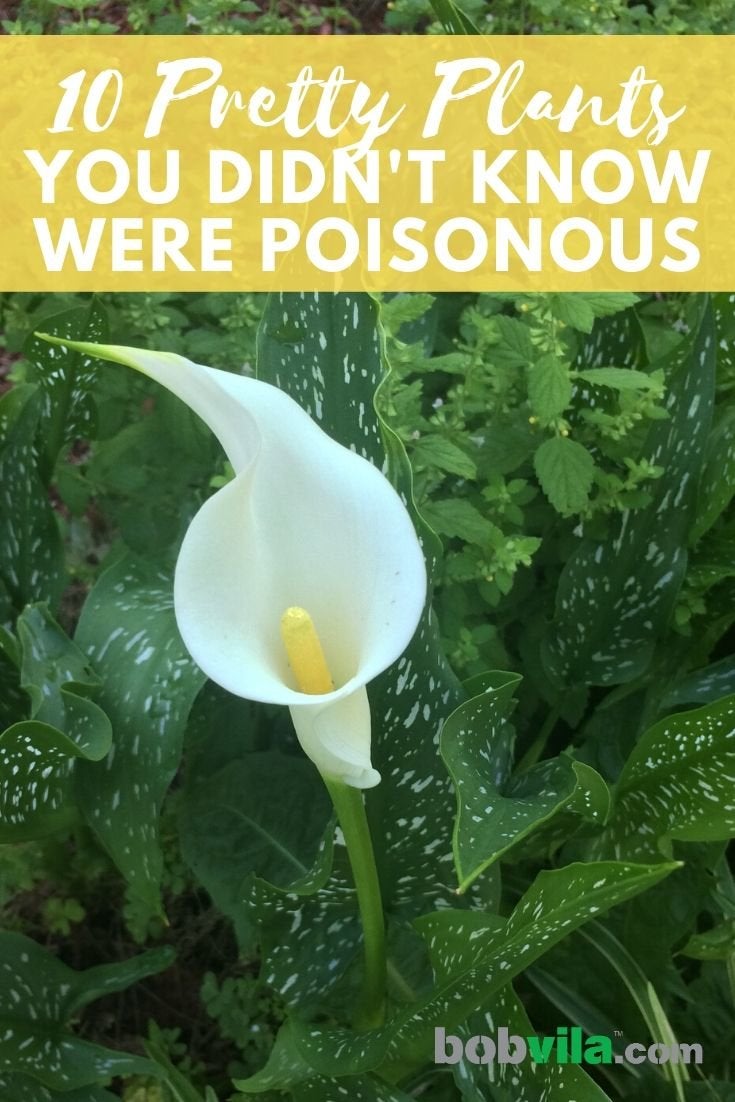
It’s okay to include these plants in your landscape, just make sure your pets (or even small children) don’t nibble on them.

All You Need to Care for Your Lawn & Garden
Keeping your grass green and your plants thriving doesn’t just take a green thumb—it starts with the right tools and supplies.